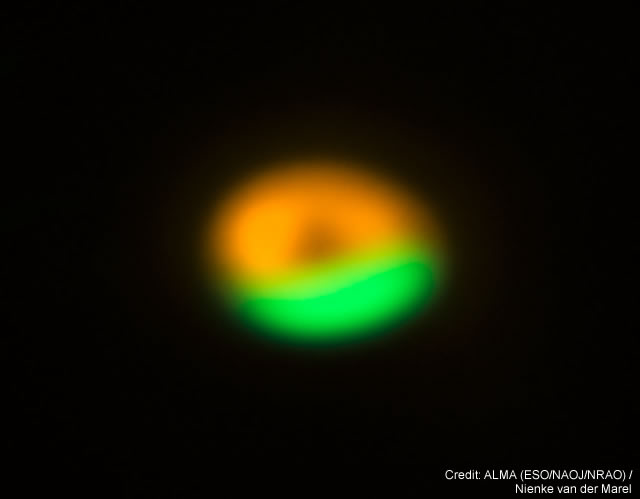ALMA Discovers Comet Factory --- New observations of a “dust trap” around a young star solve long-standing planet formation mystery
| Science
Astronomers using the new Atacama Large Millimeter/submillimeter Array (ALMA) have imaged a region around a young star where dust particles can grow by clumping together. This is the first time that such a dust trap has been clearly observed and modelled. It solves a long-standing mystery about how dust particles in discs grow to larger sizes so that they can eventually form comets, planets and other rocky bodies. The results are published in the journal Science on 7 June 2013.
This research was presented in a paper “A major asymmetric dust trap in a transition disk”, by van der Marel et al, to appear in the journal Science on 7 June 2013.

Link
- ALMA Discovers Comet Factory --- New observations of a "dust trap" around a young star solve long-standing planet formation mystery
- “A major asymmetric dust trap in a transition disk” Science (7 June 2013)
This article is including a link to a article for kids.
It's a Trap! Printer-friendly
 Space Scoop | UNAWE
Space Scoop | UNAWE
The Universe Awareness website provides children through the world with fun, easy to understand news and educational materials about the Universe. These help kids understand the size and beauty of the Universe. The “Space Scoop” section of Universe Awareness contains articles written for kids explaining current astronomy news. A Space Scoop is available for this article.